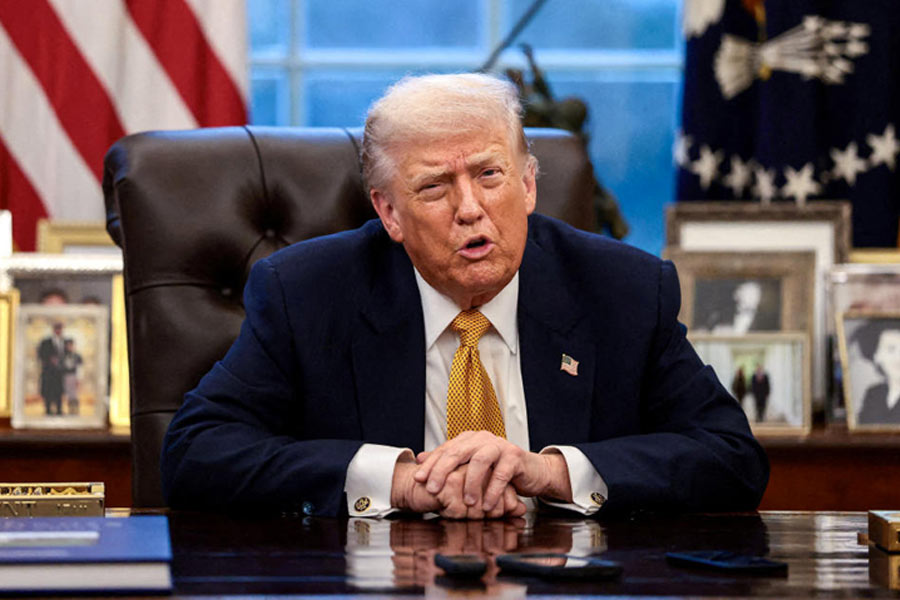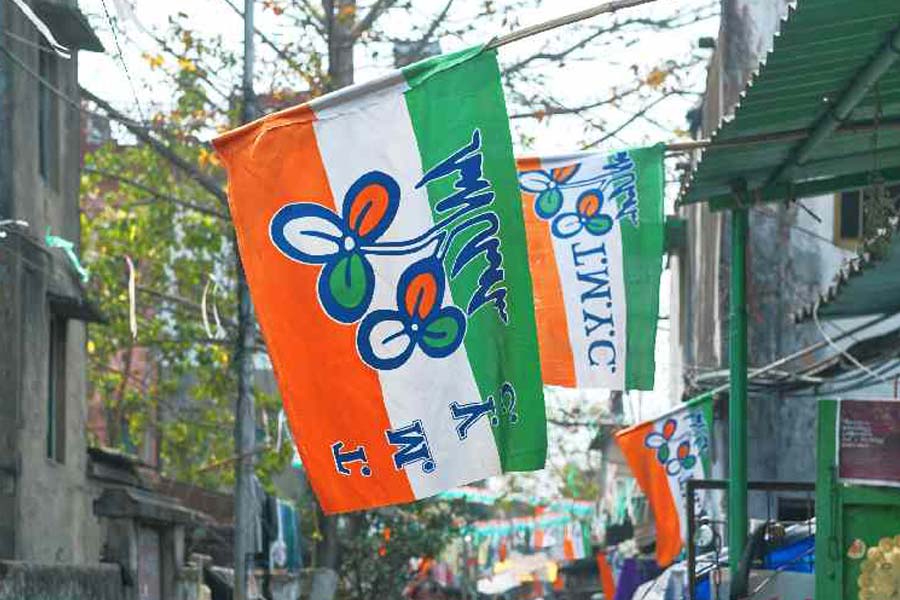Kashmiri politicians of all hues have for years had to endure being labelled pro-Pakistan by critics from the "mainland".
Now, two of the Valley’s senior-most mainstream politicians have accused each other of pro-Pakistan provenance, in an apparent nod to the purported change in political mood following Pahalgam and Operation Sindoor.
Omar Abdullah and Mehbooba Mufti exchanged barbs over the chief minister’s call to revive the contentious Tulbul Navigation Project, which involves regulating the Jhelum’s water before it flows into Pakistan to enhance navigation and hydropower generation in Kashmir.
Omar accused the Peoples Democratic Party chief of trying to please Pakistan after she objected to his call. She hit back by alleging Omar’s grandfather Sheikh Abdullah had for two decades demanded Kashmir’s accession to Pakistan.
It was India's decision to put the Indus Waters Treaty (IWT) in abeyance that prompted Omar on Thursday to urge a second look at the stalled Tulbul project, also called the Wular Barrage.
The project was abandoned in the 1980s following objections from Pakistan, and attempts to revive it thereafter attracted the militants’ anger.
Valley politicians have for years asked Delhi to compensate Jammu and Kashmir for the losses it incurs from the "discriminatory" IWT.
Mehbooba castigated Omar for making an "irresponsible and provocative" statement "at a time when both countries have just stepped back from the brink of a full-fledged war — with Jammu and Kashmir bearing the brunt through the loss of innocent lives, widespread destruction and immense suffering".
"Weaponising something as essential and life-giving as water is not only inhumane but also risks internationalising what should remain a bilateral matter," she posted on X, terming Omar’s comments "deeply unfortunate".
Omar responded: "Actually, what is unfortunate is that with your blind lust to try to score cheap publicity points & please some people sitting across the border, you refuse to acknowledge that the IWT has been one of the biggest historic betrayals of the interests of the people of J&K.
"I have always opposed this treaty & I will continue to do so. Opposing a blatantly unfair treaty is in no way, shape, size, or form warmongering; it’s about correcting a historic injustice that denied the people of J&K the right to use our water for ourselves."
To this, Mehbooba replied: "Time will reveal who seeks to appease whom. However, it’s worth recalling that your esteemed grandfather, Sheikh Sahab, once advocated for accession to Pakistan for over two decades after losing power. But post being reinstated as Chief Minister, he suddenly reversed his stance by aligning with India."
Sheikh Abdullah was removed from power in 1953 after Delhi got suspicious that his call for greater autonomy was a ruse for Kashmiri independence. However, the Sheikh is not known to have ever explicitly demanded accession to Pakistan.
"We don’t need to stoke tensions or adopt warmongering rhetoric to validate our dedication. Our actions speak for themselves," Mehbooba said.
The Tulbul project envisaged the construction of a barrage 439 feet long and 40 feet high, with a storage capacity of 300,000 acre feet of water.
One of its objectives was to regulate the release of water from the Wular Lake to maintain a minimum draught of 4.5 feet in the Jhelum from Sopore to Baramulla, a critical stretch that often becomes non-navigable in the lean season. The Jhelum flows into the Wular Lake before heading for PoK.










